Donald Trump is returning to the White House as the world is embroiled in two widening regional wars, America’s rivals are coalescing into a new global authoritarian axis and some of the U.S.’s closest allies fret over his re-election’s consequences.
Russia has now enlisted North Korea into its nearly three-year war in Ukraine, where it is making slow but steady advances. Israel’s year-old war with Palestinian militant group Hamas in Gaza has expanded into an invasion of Lebanon and the first-ever direct exchanges of missile strikes between Israel and Iran. China is giving crucial economic and political support to the cooperation among Moscow, Pyongyang and Tehran—while strengthening its own military for a possible war over Taiwan.
In remarks that sent shivers through allied capitals, Trump declared days before the Nov. 5 election that “in many cases, our allies are worse than our so-called enemies.” He also repeated his threat not to protect “under any circumstances from Russia” the members of the North Atlantic Treaty Organization who are “delinquent” in their contributions to the alliance’s security.

Europeans are among those most worried worldwide about a second Trump presidency. A Gallup opinion poll carried out last month showed that overwhelming majorities rooted for Kamala Harris in Germany, France, Italy and the U.K.—as well as in South Korea and Japan. By contrast, she was supported by only 12% of surveyed people in Russia.
Despite lofty promises of “Zeitenwende”—a historic turning point—made by German Chancellor Olaf Scholz after the Russian invasion of Ukraine in February 2022, Europe hasn’t expanded its security capabilities by nearly as much as it would need to defend itself. The continent remains highly dependent on American protection that is no longer guaranteed.
Now, as Trump’s support for European security is very much in doubt, Europe faces a test of whether it will have the political will to protect its future—which involves, in the immediate term, preventing a Russian victory in Ukraine.
“If this is not the jolt that Europe needed to get its act together, I don’t know what could be one. Absent U.S. leadership, NATO could be paralyzed,” said Bruno Tertrais, deputy director of the Foundation for Strategic Research, a think tank that advises the French government. The leaders of the U.K., France, Germany and Poland should urgently meet to coordinate a joint stand, he said, especially to avoid the pitfalls of the first Trump presidency, when individual European nations sought to cut bilateral deals with Washington.
“The result needs to reaffirm the commitment of the United Kingdom and European allies to the values of freedom and democracy,” said British lawmaker Alex Sobel, chair of the U.K. parliament’s all-party group on Ukraine. “We all need to work together to ensure there is no creeping isolationism and protectionism.”
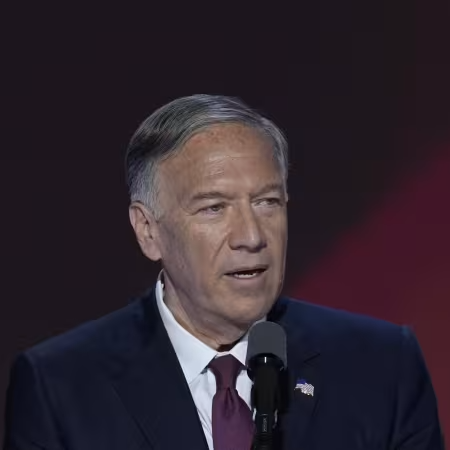
When asked about dealing with Trump, senior officials in allied capitals said they first need to see what kind of administration he assembles and who fills key national-security and foreign-policy positions. Many national-security professionals from Trump’s first term have publicly broken with him and won’t return to the new administration.
Trump’s current orbit includes people such as former Secretary of State Mike Pompeo, an old-school Republican hawk on Russia and China, JD Vance, his vice-presidential pick, who favors cutting commitments to Europe and focusing on Asia, as well as outright isolationists and backers of a purely transactional approach. “Everything will depend on who gets what job,” a senior European official said. “The bench is thin.”
While Trump has promised to negotiate a peace in Ukraine within 24 hours, he hasn’t indicated how. European officials expect him to try to seek some kind of grand bargain with Russian President Vladimir Putin—but wonder whether he will have the persistence to actually reach a deal or will give up, as he did after a failed summit with North Korean leader Kim Jong Un in 2019.
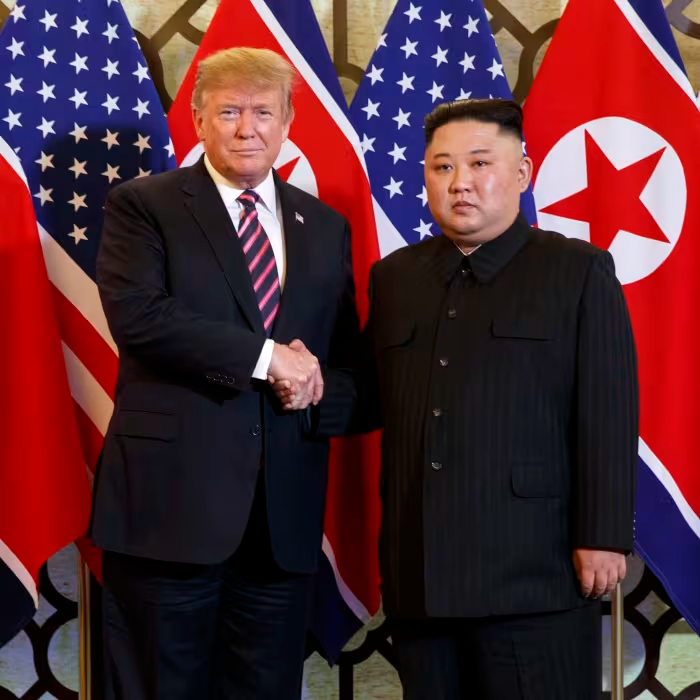
In a way, the better option for Europe would be Trump simply stopping American military aid for Ukraine, saying it is a European problem and putting Europe in front of its own responsibilities, said Norbert Röttgen, a leading lawmaker from Germany’s center-right CDU party. Far worse for Europe would be a Trump who is actually determined to strike a deal with Putin, Röttgen said: “Such an agreement can only come at the expense of Ukraine’s, and therefore Europe’s, security.”
In the first scenario, as long as Washington continues sharing intelligence and remains benevolent, the Europeans could buy weapons from the U.S. for Ukraine, preventing a collapse on the battlefield, a German official said. But it would be much tougher, the official said, if Trump decided to withhold all security assistance as a means of pressuring Ukraine to adhere to a deal on terms that would be acceptable to Putin.
Among the large European countries, only Poland has massively invested in its military, and plans to spend more than 4% of its gross domestic product on defense this year. Over the past three years, total delivered and pledged German military aid to Ukraine—some of which won’t arrive until 2028—amounted to 28 billion euros, or roughly $2 a week per German citizen.
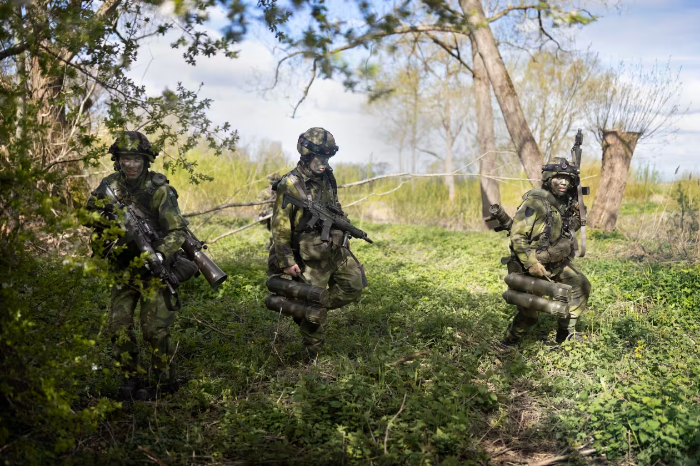
Officials in France, Poland and several other European nations worry that Germany is increasingly inclined to work with Trump on a deal that would erode Ukrainian sovereignty—as Scholz positions himself as the “candidate of peace” ahead of national elections that must be held next year at the latest. Pro-Russian parties on the far right and the far left in the country are eating into Scholz’s electoral base, and opinion polls predict that the center-right CDU will return to power. The CDU leader, Friedrich Merz, has been somewhat more hawkish, saying that, under certain conditions, he would approve supplying Ukraine with Taurus long-range precision missiles able to hit Russia, something that Scholz has repeatedly ruled out.
Lithuania’s outspoken foreign minister, Gabrielius Landsbergis, took to social media this week, warning fellow Western leaders that by trying to cut a deal with Russia, “we are choosing dishonor and we will have war.”
While one of Trump’s closest confidants in Europe has been Hungarian Prime Minister Viktor Orban—who opposes aid to Ukraine and favors warmer ties with Russia—the president-elect has also developed a close relationship with Poland’s conservative president, Andrzej Duda. In a meeting with Duda in April, Trump quoted Orban as saying that Russia has always been victorious in land wars, defeating Hitler and Napoleon, and therefore would crush Ukraine, according to people familiar with the encounter. Duda challenged that record, pointing out that Russia was only successful when it had been invaded—and doesn’t have such a record of invincibility when invading other nations.


In the Middle East, unlike in Europe, many American allies and partners are sanguine or outright thrilled by Trump’s victory. With checkered human-rights records, many of these governments look forward to not being lectured by Washington.
Turkey hopes Trump will withdraw U.S. troops from Syria, abandoning the Kurdish enclave there. Israel’s Prime Minister Benjamin Netanyahu is counting on Trump’s support for more aggressive actions against Iran, while the Saudis and other Gulf states believe Trump would provide more credible guarantees of their own security. Many in the Arab world also believe Trump—unlike President Biden—would force Netanyahu to scale back fighting in Gaza, where tens of thousands of Palestinians have been killed by Israeli military action over the past year. Israel has repeatedly defied the Biden administration’s demands.
“There is a sense of relief that Trump has won,” said Abdulkhaleq Abdulla, a political scientist and commentator in the United Arab Emirates. “We need a strong U.S. president rather than a weak U.S. president that Biden has proven to be, and that Harris would have been too. A weak U.S. president is bad for the region—and is even bad for the Palestinians.”
This leaves Iran as the only major Middle Eastern nation that sees Trump’s return to the White House as a clear threat. Trump, during his previous term, authorized the killing of Iranian Quds Force commander Qassem Soleimani, and pulled the U.S. from a nuclear deal negotiated by the Obama administration. “The way the Iranian authorities will read this outcome will be, I think, to try to accelerate their nuclear program so as to acquire a nuclear deterrent to protect the safety of their regime—because of the fear that there could be an agenda of regime change inside Iran,” said Sinan Ulgen, director of the Edam think tank in Istanbul.
In Asia, as in Europe, the betting is on what shape the second Trump administration will take. A Chinese former official pointed out that, despite the presence of China hawks in Trump’s orbit, Trump—unlike Biden—never explicitly said the U.S. will go to war over Taiwan, and is more likely to listen to the business lobby that wants a detente with China. The former official cited Trump’s flip-flop over banning TikTok as proof of his pragmatism when it comes to Beijing. Tesla chief executive and Trump supporter Elon Musk also has significant investments in China.
While officials in Taiwan, South Korea and Japan are concerned about stiff tariffs potentially coming their way, some also see new opportunities in a Trump presidency. Takashi Kawakami, the foreign-policy adviser to Japan’s new Prime Minister Shigeru Ishiba, made headlines this month by saying in an interview with the Daily Cyzo publication that a Trump victory would finally allow Japan to reclaim sovereignty curtailed since the end of World War II, returning control over much of Japanese airspace and reclaiming land occupied by U.S. military bases.
“We can take the initiative and become a truly independent country,” he said, and instead of following the U.S. lead, “find a skillful way to manage the power balance with China, Russia and North Korea.”
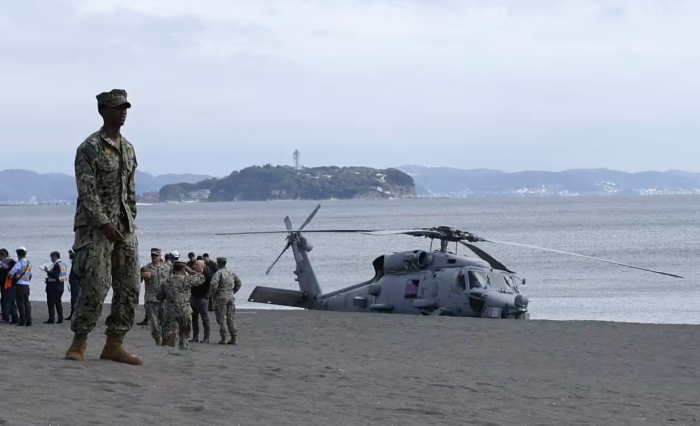
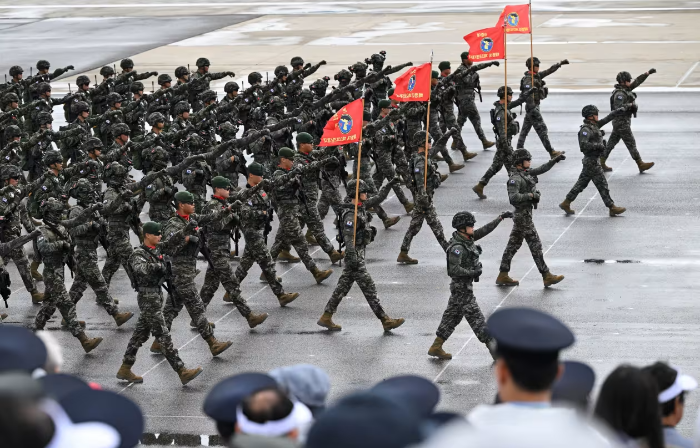
In Japan and in South Korea alike, the new sense of uncertainty is likely to reopen debates about indigenous military capabilities, including potential nuclear weapons. This new environment may pull American allies and partners—such as Japan, South Korea, Australia and the Philippines—closer together into defensive cooperation, but it could also encourage hedging in their relationship with Washington, said Gordon Flake, CEO of the Perth USAsia Center at the University of Western Australia.
In any case, Trump’s comeback—and the scale of his victory—will force America’s allies to recalibrate their approach, he said.
“I don’t think anybody can predict how those recalibrations will take place because we also live in democratic societies here,” said Flake. “And in a democratic society, you can no longer take support for the U.S. for granted in a way we have always had.”
By Yaroslav Trofimov
yaroslav.trofimov@wsj.com















